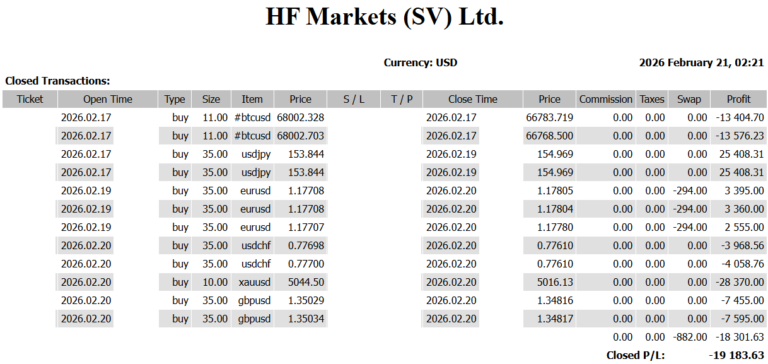The trading from July 22 to 26 resulted in a total profit of 69,304 USD. However, it’s regrettable that I couldn’t fully capitalize on the opportunities by focusing more on cross-yen selling. In such market conditions, a strategy focused on cross-yen pairs would have been more effective.
Market Trends and Key Points Moving Forward
Currently, the trend of buying Japanese yen is likely to continue, and the strategy of selling U.S. dollars is expected to remain in place. Market participants need to pay close attention to the movements of currency pairs centered around the Japanese yen.
However, USD/JPY is expected to be volatile due to upcoming monetary policy announcements from Japan and the United States. Particularly, the BOJ Monetary Policy Meeting scheduled for July 30-31 is a critical event that could significantly impact the yen exchange rate.
Key Points to Watch
- BOJ’s Monetary Policy The BOJ is expected to discuss plans to reduce bond purchases and the possibility of additional rate hikes. This decision could lead to yen appreciation.
- U.S. Political Developments Vice President Harris narrowing the gap in support with former President Trump is also noteworthy. This could become a political risk factor in the U.S., potentially affecting the foreign exchange market.
Focus on Each Currency
- USD (US Dollar): Neutral to Sell USD/JPY is expected to be volatile ahead of the BOJ meeting and FOMC. While there is increasing speculation of a BOJ rate hike, the FOMC is expected to issue dovish statements.
- JPY (Japanese Yen): Neutral to Buy If the BOJ decides to raise rates, the yen could strengthen. However, if they refrain from raising rates, there is a risk of a sharp rebound in USD/JPY.
- EUR (Euro): Neutral EUR/USD continues to be influenced by U.S. dollar movements. The ECB’s policy is data-dependent, but U.S. economic indicators will have a significant impact.
- AUD (Australian Dollar): Neutral to Buy Depending on the outcomes of the BOJ and FOMC meetings, volatile movements are expected. Signs of accelerating inflation could support the Australian dollar’s rise.
- ZAR (South African Rand): Neutral to Sell With expectations of a rate cut by the SARB, speculation of a BOJ rate hike could promote yen buying.
- GBP (British Pound): Neutral With attention on Japanese and U.S. monetary policies, the BoE is expected to maintain its policy. However, an early rate cut could be anticipated based on UK CPI data.
- CAD (Canadian Dollar): Neutral to Sell Expectations of a rate cut by the BOC are limiting the upside for the Canadian dollar.
Postscript
Thank you for reading this week’s FX Trading Weekly Report! This time, I would like to talk about summer colds. It’s surprisingly common to catch a cold during the hot summer months. I’ll explain the causes and prevention methods of summer colds in an easy-to-understand way based on the latest information.
What is a Summer Cold? A summer cold is a type of cold caused by viruses. Unlike a common cold, it can cause throat pain, coughing, runny nose, fever, and sometimes stomach issues. The abrupt temperature changes between the hot outdoors and air-conditioned indoors can disrupt your body’s temperature regulation, making you more susceptible to illness.
Causes of Summer Colds The main causes of summer colds are viral infections and body cooling. The temperature difference between air-conditioned indoors and the hot outdoors can stress your body. Additionally, cooling down too quickly after sweating can lower your immunity, making it easier for viruses to infect you.
Prevention of Summer Colds Here are some key points to prevent summer colds:
- Frequent Hand Washing: It’s crucial to wash your hands thoroughly for at least 20 seconds with soap and water to remove viruses. Remember to wash your hands especially before meals and after returning from outside.
- Careful Use of Air Conditioning: When using air conditioning, avoid cooling the room too much. Set the temperature between 25-28 degrees Celsius and ensure the airflow doesn’t directly hit your body.
- Balanced Diet: Consuming a balanced diet can boost your immunity. Foods rich in vitamin C and zinc, such as fruits, vegetables, and nuts, are especially beneficial.
- Regular Exercise and Adequate Sleep: Maintaining physical strength through regular exercise and sufficient sleep enhances immunity, reducing the likelihood of catching a cold.
Supplements That Help with Summer Colds
- Vitamin C: Enhances immunity and reduces the severity of cold symptoms. It’s available in citrus fruits and supplements.
- Zinc: Supports immune function and alleviates cold symptoms. It can be found in nuts, seafood, and supplements.
- Probiotics: Strengthens immunity by improving gut health. Consuming yogurt or supplements can be beneficial.
Summary While anyone can catch a summer cold, taking basic preventive measures can help you enjoy a healthy summer. Take care of your health and have a great summer! See you in next week’s FX Trading Weekly Report!


